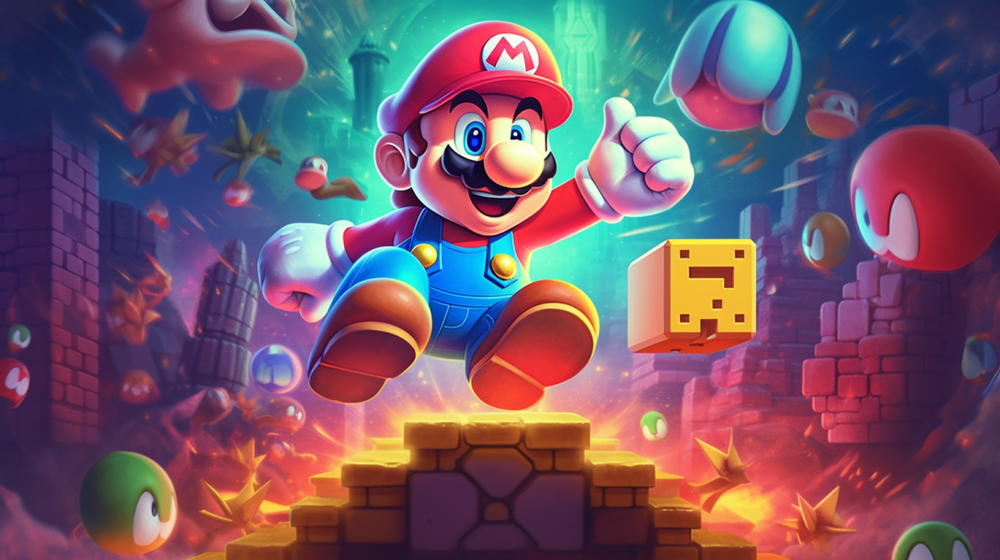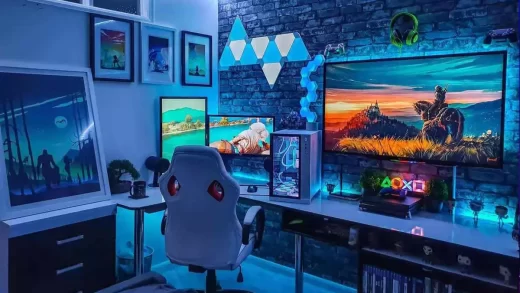Music has the remarkable power to enhance and elevate the gaming experience, immersing players in virtual worlds and evoking emotions that enrich their gameplay. In this article, we will explore the profound impact of gaming soundtracks on immersive gameplay and how music contributes to the overall enjoyment of video games.
Table of Contents
- Introduction
- The Role of Music in Video Games
- Setting the Tone and Atmosphere
- Enhancing Storytelling
- Heightening Emotions
- Guiding Player Engagement
- Iconic Video Game Soundtracks
- The Work of Composers
- Player Interaction with Soundtracks
- Conclusion
Introduction
The fusion of music and video games has evolved into an art form that captivates players, drawing them deeper into the worlds they explore. The interplay between interactive gameplay and carefully composed soundtracks creates a multisensory experience that transcends mere entertainment.
The Role of Music in Video Games
Music in video games serves multiple essential functions:
Setting the Tone and Atmosphere
- Establishing Atmosphere: Music sets the mood for different game environments, whether it’s an eerie, suspenseful melody in a horror game or an uplifting tune in an adventure game.
- Conveying Time Periods: Historical accuracy is often conveyed through music, helping players feel immersed in specific time periods or locations.
Enhancing Storytelling
- Narrative Enhancement: Music underscores key moments in the game’s story, heightening tension during conflicts or evoking empathy during emotional scenes.
- Character Themes: Unique musical themes for characters help players connect with them on a deeper level.
Heightening Emotions
- Emotional Resonance: Music amplifies the emotional impact of gameplay, making victories sweeter and defeats more poignant.
- Fear and Tension: Horror games leverage music to create fear and tension, enhancing the thrill of the experience.
Guiding Player Engagement
- Interactive Elements: Adaptive soundtracks change based on player actions, dynamically responding to in-game events.
- Audio Cues: Music can provide audio cues for gameplay elements, such as signaling the approach of an enemy.
Iconic Video Game Soundtracks
Several video games are celebrated for their iconic soundtracks:
- “The Legend of Zelda” Series: Known for its memorable and adventurous music, it has become synonymous with epic quests.
- “Final Fantasy” Series: Renowned for its emotionally charged compositions, it enhances storytelling and character development.
- “The Elder Scrolls V: Skyrim”: Its sweeping, orchestral score immerses players in a rich fantasy world.
- “Undertale”: A unique soundtrack that dynamically responds to player choices, enhancing the game’s narrative impact.
- “Halo” Series: Its epic and heroic music has become emblematic of the franchise.
The Work of Composers
Composers play a vital role in creating memorable gaming soundtracks. Visionary composers like Nobuo Uematsu, Koji Kondo, and Jeremy Soule have left an indelible mark on the gaming world through their music.
Player Interaction with Soundtracks
The interactive nature of video games allows players to engage with soundtracks in unique ways:
- Custom Playlists: Some games let players create custom playlists from in-game music, enhancing the connection between the player and the soundtrack.
- Fan Covers and Remixes: Gamers often create their versions of game music, fostering a vibrant community of remixes and fan covers.
- Live Concerts: Gaming soundtracks are performed live in concerts worldwide, providing fans with the opportunity to experience the music in a new dimension.
Conclusion
Gaming soundtracks have evolved into an integral part of the gaming experience, elevating gameplay, and enhancing immersion. Music in video games goes beyond mere background noise; it is a dynamic, emotional, and interactive component that enriches storytelling, guides player engagement, and leaves a lasting impact on gamers worldwide. As the gaming industry continues to grow and innovate, the power of music to enhance immersive gameplay will remain a fundamental element of this dynamic medium.












